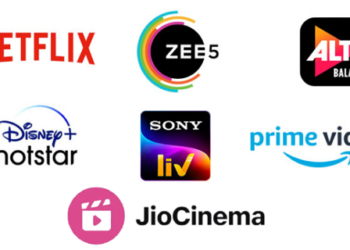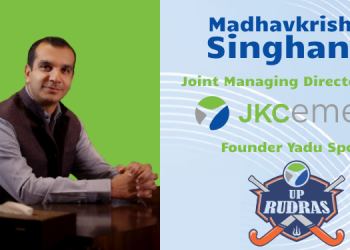Why Digital Marketers Who Build Trust With Their CFOs Will Succeed
With Digital Marketing Spend in India expected to reach Rs 12,046 crore by December 2018 and Markets like US to climb as high as $120 billion by 2021, the necessity for a better understating between the CMO and CFO arises naturally, to structure an effective investments strategy in the areas of marketing and achieve an equally proportionate ROI.
Historically, there’s been a bit of a disconnect between an organization’s CFO and its CMO: One primarily focuses on cost and revenue while the other focuses on awareness and demand generation. As this study shows, CFOs want to understand how marketing activities directly affect the bottom line of their businesses.
In order to bridge the gap and make allies out of possible adversaries, CMOs must demonstrate in a clear and concise manner the value of their advertising spend. In many ways, the emergence of digital marketing has helped ease the tension, as it’s enabled marketing investment to be more measurable.
In order to prove value, marketers must have robust measurement techniques in place and a clear definition of success. With the many consumer touchpoints, both online and offline, CMOs must leveragethe right partners and technology to help them measure in a more transparent and comprehensive way.
No wonder more brands are moving to a people- based approach to advertising that relies on first-party data to identify real individuals and connect them to their devices and actions both online and offline. These brands can then deliver more relevant ads and directly measure a campaign’s impact on sales.
CMOs can help CFOs understand the value they’re getting for an often very large investment. They can become confident they will retain, or perhaps even increase, their budgets.
Key Findings
- 94% of CFOs would increase digital marketing budgets if there were clear evidence the investment resulted in sales.
- 38% of CFOs still consider digital marketing to be a cost center within their business.
- 94%of companies who don’t measure digital marketing success say this is because vendors aren’t able to measure or measure in inconsistent ways.
- 36% of CFOs believe the CMO at their organization uses “vanity metrics,” like click-through rates and impressions, to measure digital marketing results and
- 22% say marketing teams don’t measure in terms of concrete outcomes.
- 87% of both CFOs and CMOs want to or already measure online sales resulting From digital marketing; 66% want to or already measure offline sales as a result of digital marketing.
Rising Budgets
CMOs and CFOs are seeing eye to eye on digital marketing budgets, with similar numbers of CFOs (68%) and CMOs (72%) expecting budgets to rise in 2018.
Concerns Remain
- Though the more accountable nature of digital marketing has indeed helped ease the natural tension that has long existed between marketing and finance, many CFO’s still view digital marketing as a cost center within their organization, meaning they believe it does not directly add profit but still costs money to operate.
- Not surprisingly, CFOs want greater insight into return on ad spend, and a number of them still don’t believe their marketing team measures in terms of concrete outcomes like sales.
- 34% reported thinking their CFOs believed marketing to be a cost center and 32% were concerned CFOs thought they measured in vanity metrics
Get More, Not Less…!
As we alluded to earlier, CFOs and CMOs have similar expectations for digital marketing budgets in 2018. 68% of CFOs expect digital marketing budgets to rise in the year ahead and a very similar percentage of CMOs (72%) are anticipating the same.
There is a very good opportunity for marketers: In fact, 94% of CFOs said they would be likely to increase digital marketing budgets if they were provided with clear evidence that the investment resulted in sales.
Still, though, almost a third of CFOs (32%) are planning for the same budget as 2017 or less. Simply put, the ability to tie advertising investment to actual purchase and prove return will unlock more budget
Measurement Challenges:
Marketers are struggling to find the right tools to enable them to prove and to communicate that digital marketing gets its desired result.
Vanity metrics, which as we noted earlier largely aren’t trusted outside of marketing departments, are simple to measure and so most companies track them. In fact, 87% reported measuring clicks, impressions, video ad completion rates or engagement rates. While helpful, these figures can only tell part of the story.
Similarly, online sales is easier to track than in-store sales, and 76% of respondents currently track them.
In the United States, 90% of retail sales still happen in-store. And yet, 30% more companies are measuring their online sales than their offline sales.It’s not because they don’t want to be creating as full a picture as possible, it’s because they aren’t able to.
Impact of a people-based approach
A people-based approach enables marketers to move beyond anonymous cookies and third-party data to reach real people by leveraging registered user profiles and linking to their connected devices. With such an approach, marketers can enrich what they already know about theircustomers, better understand their behavior once they’ve been targeted and measure a campaign’s impact on sales, both online and offline. 64% of CMOs say they already use people-based marketing to improve their advertising campaigns
A people-based approach can also help CMOs ensure their CFOs have complete understanding of marketing activities and how they affect all areas of business. Explaining the value of spend, and not just through a language of clicks and impressions, can go a long way.
Four Ways CMOs can Build Trust with CFOs:
- Agree on the Metrics That Matter and Be Transparent About Processes
Understanding and agreeing on what success looks like is critical. CMOs and CFOs must work together to create clear definitions for key terms and decide which metrics matter most – that might mean focusing on sales figures and not page views.
- Prepare For Digital Transformation
Almost a third of companies don’t measure their digital marketing efforts because they simply aren’t ready to do so. Make sure you have the right internal structure and systems in place to work effectively with your selected technology partners
- Meet With Innovative Partners
Successful digital marketing is heavily dependent on having the right technology partners in place. Make sure you are bringing in the best tech to connect all of your data points to achieve a full 360-degree view of your customers.
- Be Open to Probing Questions
CFOs want to understand the value of spend. Treat questions From your CFO as an opportunity to create better understanding, and perhaps even a chance to make tweaks to your strategy that will ultimately benefit you and the business.






















